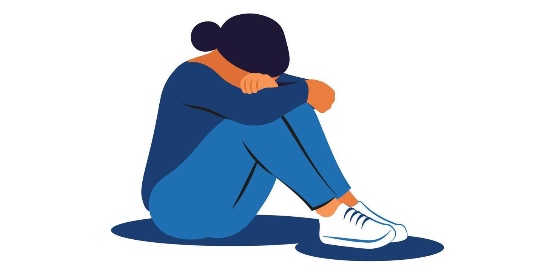
In medical terms, monophobia is simply the fear of loneliness, the fear of being selfish, or the fear of being alone. The word “mono” means single or one, the word “phobia” means fear; In other words, the word "monophobia" is formed from the combination of these two words. Monophobia also has some different names: autophobia, isophobia or eremophobia. It is generally considered a type of agoraphobic phobias. Someone with monophobia feels intense anxiety when exposed to situations of being alone. The phrase "I'm afraid of being alone" is closely linked to monophobia. This fear and anxiety may increase even more, especially when a person moves away from loved ones.
Why Does Monophobia Occur?
Monophobia can occur due to many different reasons that a person has encountered or experienced, that is, the reason for its emergence varies individually. Even if there is no specific cause, there are factors that play an important role:
-Socio-economic reasons
-Exposure to long-term stress
-Anxiety
-Failed human relationships
-Traumas
-Genetic factors
Symptoms
The main reason why people with monophobia cannot be alone is that if they panic when they are alone, they are afraid of doing terrible things that could harm themselves or their environment, and moreover, they believe that they will die. Monophobia has both physical and emotional symptoms. Its physical symptoms are very similar to phobia and anxiety disorders, as we mentioned above. There are also symptoms that vary from person to person.
Factors That May Trigger Monophobia
Have had anxiety disorders or other mental health problems
Having experienced abuse, neglect, or abandonment
Having low self-esteem or self-confidence
Having poor social skills or support resources
Having separation anxiety disorder or attachment difficulties
Treatment
Especially for people with more than one phobia, it is more difficult to cope with this situation than others, and these people definitely need professional help. Monophobia can be treated like other phobias by gradually increasing the level. First of all, as in all diseases, the person must accept that he is sick. Just as the factors that cause phobia are different, treatments also vary from person to person.
Some popular treatment methods are:
Cognitive behavioral psychotherapy (CBT)
According to the Turkish Psychiatric Association, cognitive behavioral therapy; It studies the relationships between thoughts, feelings and behaviors and focuses on problems. Afterwards, some strategies are developed for the patient to cope and the patient is provided with various skills.
Monophobia Treatment with Desensitization Therapy
Desensitization therapy is also called EMDR therapy. With this method, the person is made to relive the negative experiences he had in the past. These experiences of the person are reprocessed and gradually the person becomes desensitized to these negative experiences. Thus, the person is enabled to look at the negative experiences he had in the past from a different and positive perspective.
Treating Monophobia with Exposure Therapy
In exposure therapy, the person is directly exposed to the feelings of loneliness he or she experiences. The aim of this therapy method is to confront the person's fears. Of course, this is not something that will happen in a short time. First, the main reasons for a person's fear of loneliness are identified. Subsequently, the individual suffering from the disorder is exposed to these situations in a controlled manner, step by step. Over time, the person begins to learn to face his fears and loneliness. In addition, the person is taught breathing control techniques, muscle relaxation methods and meditation methods to help him relax. The person will gradually get used to the situations he or she fears by being exposed to them, and thus the feeling of fear will decrease. Thanks to this method, the person will see that the things he fears and worries about are not as dire as he thinks. In this way, he will no longer find himself in great panic and fear when he is alone, and he will feel more in control of the decisions he makes in his life.
